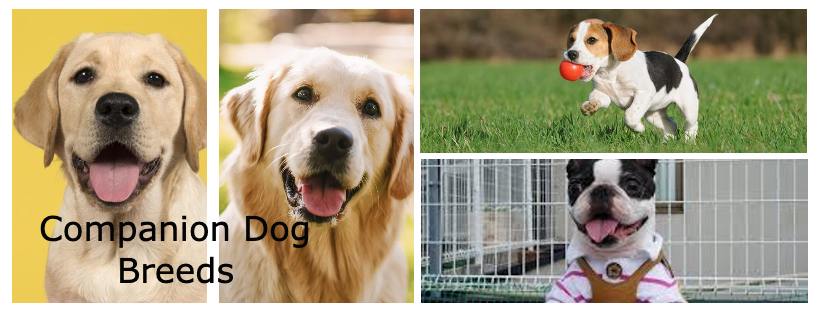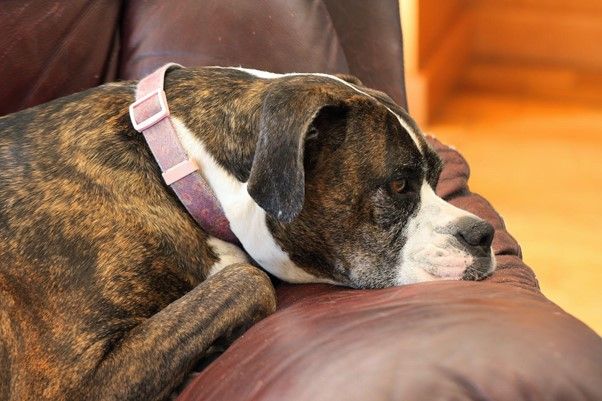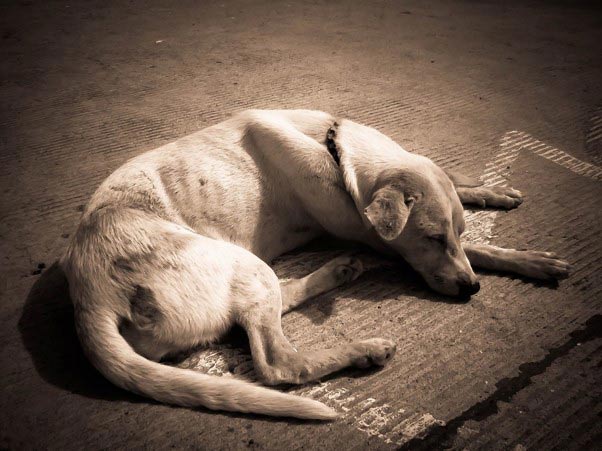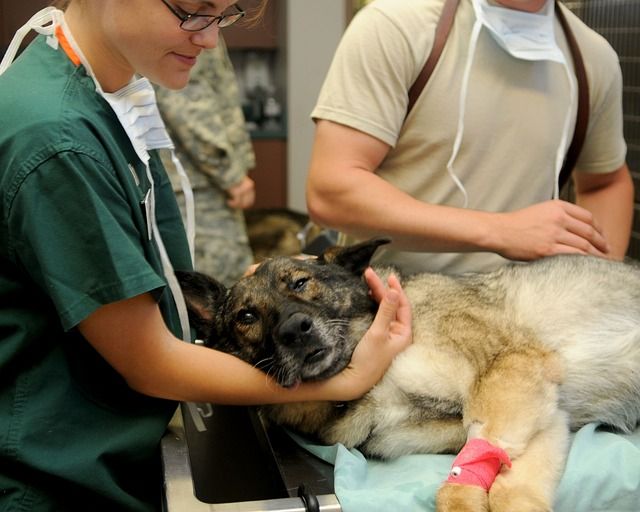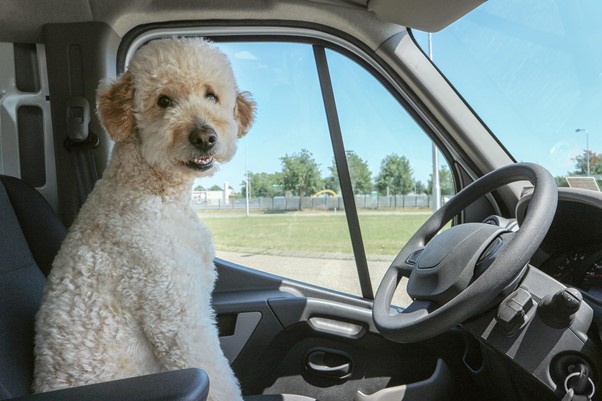Which Dog Breed Is Best For Me?
When it comes to choosing the perfect dog breed for you and your family, it’s important to consider the intended purpose of the dog. Some breeds are better suited for working or guarding purposes, while others make great companions or pets. Here is a comprehensive guide to help you choose the best dog breed for your needs.
We will discuss everything from what to consider before you make your decision, to what to look for in a dog breed that would be a good fit for your lifestyle. So whether you’re looking for a cuddly lapdog or an energetic working dog, we have all the information you need to make the best choice for your needs!
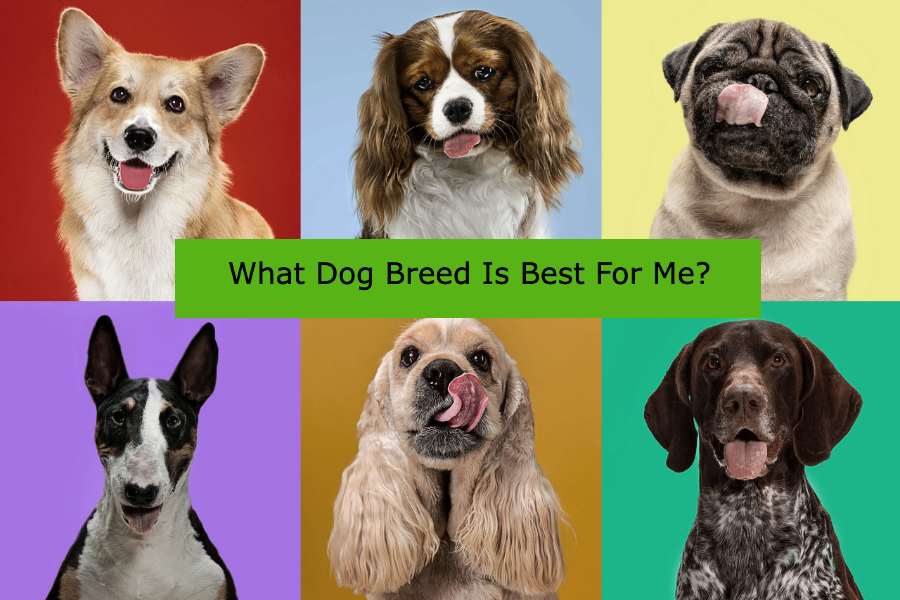
Table of Contents
Factors To Consider When Choosing A Dog Breed
When it comes to choosing the perfect dog breed for your family, there are a lot of things to consider. Different breeds of dogs have different temperaments and needs, so it’s important to do your research before making a decision.
12 Things to consider when choosing a dog breed
1. Size
One of the first things to consider when choosing a dog breed is size. Do you have enough space for a large breed? Are you looking for a small lapdog? Some people prefer small dogs that can be easily carried around, while others prefer larger breeds that can go on long walks and hikes.
Consider your living situation and choose a size that will be comfortable for both you and your new pet.
2. Activity Level
Another thing to take into account is activity level. Some breeds need a lot of exercise, while others are content with a daily walk around the block. If you’re not an active person, you might want to choose a less energetic breed.
On the other hand, if you love to go on hikes or runs, you might want an active dog who can keep up with your pace. If you have a busy schedule, you might want a dog that doesn’t need as much attention. But if you prefer a more relaxed lifestyle, choose a breed that doesn’t require as much exercise.
3. Temperament
When it comes to temperament, there is a wide range of personalities among different dog breeds. Some dogs are more laid back, while others are full of energy. There are also breeds that are known for being friendly, easygoing and love to be around people while others are more independent and aloof. Different breeds of dogs have different temperaments.
Consider your own personality and choose a breed that will complement it. If you’re shy, you might want a more laid-back dog that doesn’t need a lot of attention. But if you’re outgoing, you might prefer a breed that loves to play and be around people.
4. Training Needs
Some dogs are easier to train than others. If you’re looking for a family pet, you might want to choose a breed that is known for being obedient and easy to train. If you’re looking for a dog that is easy to potty-train, consider breeds that are known for being intelligent and quick learners.
On the other hand, if you’re experienced with dogs or you don’t mind spending more time training your dog and want a challenge, you might opt for a breed that is considered more headstrong. Any breed can be trained with patience and consistency.
5. Grooming Needs
Different dog breeds have different grooming needs. Some breeds need to be brushed frequently, while others only need an occasional bath. Consider how much time and effort you’re willing to put into grooming your dog and choose a breed accordingly.
6. Shedding
Some dogs shed more than others. If you’re not a fan of dog hair in your home, you might want to choose a breed that doesn’t shed much. However, keep in mind that all dogs shed at least some hair, so even “non-shedding” breeds will require some level of upkeep.
7. Life Expectancy
Different dog breeds have different life expectancies. Some breeds live for 10 years or more, while others only have a lifespan of 5 years or so. Consider how long you want your new pet to be a part of your life and choose a breed accordingly.
8. Health Issues
Some dog breeds are more prone to health problems than others. If you’re looking for a healthy dog, you might want to choose a breed that is known for being hearty and robust. However, keep in mind that all dogs require some level of care, so even the healthiest breeds will need regular vet check-ups.
9. Cost of Ownership
Different dog breeds have different costs of ownership. Some breeds are more expensive to feed and groom than others. Additionally, some breeds are more susceptible to health problems, which can result in higher vet bills.
Consider your budget when choosing a breed. If you’re looking for a low-maintenance dog, choose a breed that doesn’t require as much grooming or exercise. But if you’re willing to spend more money, you might opt for a pricier breed.
10. Time
Some dogs require a lot of time and attention, while others are more independent. Some dogs require daily brushing to keep their coat healthy, while others only need to be brushed once a week.
Consider how much time you are willing to spend grooming, walking, and playing with your dog. If you work long hours or travel often, you might want a breed that doesn’t need as much attention. But if you have a lot of free time, you might prefer a breed that loves to play and needs lots of exercises.
10. Family needs
Consider your family’s needs when choosing a breed. If you have young children, you’ll want a calm dog that is more independent, easy-going and good with kids. Some dogs are more patient and tolerant than others, while there are others that might be too rambunctious for young ones to handle.
If everyone in your family is active, you might prefer an energetic breed that loves to play. You should also consider whether you have family members with allergies before choosing a breed. If your family member suffers from asthma or allergies, choose a hypoallergenic breed that doesn’t shed much hair.
11. Housing space
Not all breeds of dogs are suitable for living in an apartment – some need lots of space to run around. If you live in a small apartment or don’t have a yard, a large breed might not be the best choice. Make sure you pick a breed that can comfortably live inside with you.
12. Rescue or Purebred
One final thing to consider is whether you want to adopt a rescue dog or buy a purebred one. There are pros and cons to both options, so it’s important to do your research before making a decision.
Adopting a rescue dog can be cheaper and provide a sense of satisfaction, but it may be harder to find the exact breed you’re looking for. Buying a purebred can be more expensive, but you’ll know exactly what you’re getting in terms of temperament, size, and health history.
Now that you know what to consider when choosing a breed, you can start your research and find one that best suits your lifestyle and family needs. Check out our list of 20 popular dog breeds to get started.
What Dog Breed Should I Get?
Did you know that there are over 400 different dog breeds? While some are better for hunting and others excel at guarding your home, it can be tricky to decide which pup is the best fit for you and your family.
Every breed has its own set of characteristics and is best suited for various purposes. We’ve included a range of uses below, from guard dogs to hunting dogs to lap dogs for cuddling, so you can make an informed selection about which dog breed is ideal for you based on its intended purpose.
Selection Based On Intended Purpose
Companion Dog
A companion dog is one that provides companionship to their human family. They are happy to be around people, are typically great with kids and make excellent pets for retired seniors. Companion dogs don’t require much activity and will do well with moderate amounts of exercise.
Breeds best suited as companion dogs include the Labrador Retriever, Bulldog, Golden Retriever, Beagle and Boston Terrier.
Guard Dog
Guard dogs are bred specifically to protect their family and home from intruders or attackers. They have a high level of alertness and a propensity towards aggression towards anything they perceive as a threat. They are typically big and powerful with a loud bark.
Breeds that are best suited as guard dogs include the Rottweiler, Boxer, Doberman Pinscher, Alaskan Malamute, American Staffordshire Terrier, Mastiff, Belgian Tervuren, Bulldog, Caucasian Ovcharka and Chow Chow.
Service Dog
Service dogs are highly trained pups to provide assistance to individuals with disabilities or special needs. These dogs undergo an intense training program that teaches them how to perform a variety of tasks such as retrieving items, opening doors, guiding the blind, providing support for people who use wheelchairs, and even detecting seizures or changes in blood sugar levels.
They are easy to train and typically have a good temperament. These dogs can be trained to assist people who are deaf or hard of hearing, blind or have low vision, have diabetes, suffer from seizures, or are autistic.
Some of the most common service dog breeds include Labrador Retrievers, Golden Retrievers, German Shepherds, Standard Poodles, Belgian Malinois, and Border Collies.
Therapy Dog
Therapy dogs are bred to provide comfort and emotional support to people in hospitals, nursing homes, schools, and other settings. They are typically calm, gentle-natured, friendly breeds that enjoy interacting with people. They offer affection and relief from stress for people who need it. Many therapy dogs are also registered as service dogs.
Breeds that are best suited as therapy dogs include the Golden Retriever, Labrador Retriever, Poodle, Cavalier King Charles Spaniel, Bichon Frise, Beagle, and Cocker Spaniel.
Hunting Dog
These dogs are bred for hunting and have a natural instinct to track down game animals such as deer or birds. They are quick and agile, with a strong prey instinct and the capacity to scent game from afar, making them ideal for chasing down prey.
Breeds that are best suited as hunting dogs include the German Shorthaired Pointer, Scottish Deerhound, Hounds, Welsh Springer Spaniel, Beagles, Bloodhounds, Greyhounds, Brittany Spaniel, and Pointer breeds (English Pointer, German Wirehaired Pointer)
Herding Dog
Herding dogs were bred specifically to help ranchers herd livestock such as sheep or cattle. They are known for their intelligence and strong obedience. They are typically smaller in size, very protective of their flock, and have an innate herding instinct.
Common herding breeds include Australian Cattle Dog, Australian Shepherds, Welsh Corgi, German Shepherds, Border Collie, Cardigan Welsh Corgi, Icelandic Sheepdog, and Shetland Sheepdog.
Lap Dog for Cuddling
A lap dog is a small breed of dog that enjoys being held, cuddled, pet, and spending time on their owner’s lap. Lap dogs don’t require a lot of exercises and are typically content with short walks or playing inside the house.
They are typically very affectionate and make great companions for seniors those who work from home, or those looking for a low-energy companion.
Breeds that are best suited as lap dogs include the Yorkshire Terrier, Bichon Frise, and Maltese.
Family-Friendly Dogs
If you have young children, it is important to choose a dog breed that is good with kids. These dogs are typically patient, gentle and affectionate. They should also be tolerant of noise and commotion.
Breeds that are best suited for families include the American Pit Bull Terrier, Labrador Retriever, Golden Retriever, Cavalier King Charles Spaniel, Beagle, Bichon Frise, Boston Terrier, Bulldog, Cocker Spaniel, Collie, Doodle breeds (Labradoodle, Goldendoodle), Newfoundland, Portuguese Water Dog, Pug and Staffordshire Bull Terrier.
Dogs for First-Time Owners
If you are a first-time dog owner, it is important to choose a breed that is easy to train and care for. These dogs are typically intelligent, obedient and eager to please, and they make great companions for first-time owners.
Breeds that are best suited for first-time owners include the Labrador Retriever, Golden Retriever, Cavalier King Charles Spaniel, Beagle, Boston Terrier, Bulldog, Cocker Spaniel, Doodle breeds (Labradoodle, Goldendoodle), Portuguese Water Dog and Staffordshire Bull Terrier.
Dogs for Active Owners
If you are an active person who loves to hike, run or bike, you will need a dog that can keep up with your activity level. These dogs are typically high-energy, with a lot of stamina and endurance. They need a lot of exercise and mental stimulation to stay happy and healthy. Breeds that are best suited for active owners include the Australian Cattle Dog, Australian Shepherd, Border Collie, Labrador Retriever, golden retriever, Vizsla, Weimaraner, Rhodesian Ridgeback, and standard poodle.
Dogs for Apartment Living
If you live in an apartment or small space, you will need a dog that is content with smaller living quarters. These dogs typically don’t need a lot of space to run and are happy with a few short walks each day.
Breeds that are best suited for apartment living include the Australian Terrier, Basset Hound, Beagle, Bichon Frise, Boston Terrier, Bulldog, Toy Poddle, Chihuahua, Dachshund, Havanese, Jack Russell Terrier, Japanese Chin, Maltese, Manchester Terrier, Miniature Pinscher, Norfolk Terrier, Norwich Terrier, Pomeranian, and Scottish Terrier.
Dogs for Seniors
If you are a senior citizen looking for a furry companion, it is important to choose a dog that doesn’t require a lot of exercise. These dogs are typically low energy, with a calm demeanour. They are often content to lounge around the house and take a few short walks each day.
Breeds that are best suited for seniors include the Affenpinscher, American Eskimo Dog, Australian Terrier, Basset Hound, Beagle, Bichon Frise, Boston Terrier, Bulldog, Cavalier King Charles Spaniel, Chihuahua, Chinese Crested Dog, Cocker Spaniel, Dachshund, English Toy Spaniel, Havanese, Italian Greyhound, Jack Russell Terrier, Japanese Chin, Lhasa Apso, Maltese Manchester Terrier, Miniature Pinscher, Norfolk Terrier, Norwich Terrier, Papillon, Pekingese, Pomeranian, Pug, Shih Tzu, Silky Terrier and Yorkshire Terrier.
Dogs for Families with Young Children
If you have young children, it is important to choose a dog that is good with kids. These dogs are typically patient, gentle and tolerant, and they enjoy being around people.
Breeds that are best suited for families with children include the Labrador Retriever, Golden Retriever, Cavalier King Charles Spaniel, Beagle, Boston Terrier, Bulldog, Cocker Spaniel, Doodle breeds (Labradoodle, Goldendoodle), Portuguese Water Dog and Staffordshire Bull Terrier.
Dogs for Mult-Pet Households
If you already have a pet at home, it is important to choose a dog that will get along with your other animals. These dogs are typically social and easy-going, and they should be able to get along with both dogs and cats.
Breeds that are best suited for multi-pet households include the Labrador Retriever, Golden Retriever, Cavalier King Charles Spaniel, Beagle, Boston Terrier, Bulldog, Cocker Spaniel, Doodle breeds (Labradoodle, Goldendoodle), Portuguese Water Dog and Staffordshire Bull Terrier.
Dogs for Cold Climate
If you live in an area with cold weather, it is important to choose a dog that can tolerate the cold. These dogs typically have thick fur coats that protect them from the elements, and they are able to generate body heat to keep warm. Breeds that do well in cold climates include the Alaskan Malamute, American Eskimo Dog, Bernese Mountain Dog, Bouvier des Flandres, Chow Chow, Eurasier, German Shepherd Dog, Great Pyrenees, Greenland Dog, Komondor, Kuvasz, Newfoundland, Norwegian Buhund, Old English Sheepdog, Otterhound, Samoyed, Siberian Husky and Tibetan Mastiff.
Dogs for Hot Climate
If you live in an area with hot weather, it is important to choose a dog that can tolerate the heat. These dogs typically have short fur coats that don’t trap in the heat, and they are able to pant to cool themselves off.
Breeds that do well in hot climates include the Australian Cattle Dog, Australian Terrier, Basset Hound, Beagle, Bergamasco Sheepdog, Bichon Frise, Boston Terrier, Bulldog, Cavalier King Charles Spaniel, Chinese Crested Dog, Cocker Spaniel, Dachshund, French Bulldog, Jack Russell Terrier, Japanese Chin, Keeshond, Miniature Pinscher, Norwich Terrier, Pekingese, Pharaoh Hound, Pug, Rhodesian Ridgeback, Saluki, Shih Tzu, Staffordshire Bull Terrier and Whippet.
Dogs For Busy Owners
If you have a busy lifestyle, it is important to choose a dog that doesn’t require a lot of time and attention. These dogs are typically independent and can entertain themselves when you are not around. They don’t need a lot of exercise and can be content with a few short walks each day.
Breeds that are best suited for busy owners include the Australian Terrier, Basset Hound, Beagle, Bichon Frise, Boston Terrier, Bulldog, Cavalier King Charles Spaniel, Chinese Crested Dog, Cocker Spaniel, Dachshund, English Toy Spaniel, Jack Russell Terrier, Japanese Chin, Maltese Manchester Terrier, Miniature Pinscher, Norwich Terrier, Papillon, Pekingese, Pomeranian, Pug Shih Tzu, Silky Terrier and Yorkshire Terrier.
Playful Dog Breeds
If you are looking for a dog that loves to play and has lots of energy, there are a few breeds that fit this bill. These dogs typically have high energy levels and love to run and play.
Breeds that are typically playful include the Australian Cattle Dog, Australian Terrier, Basset Hound, Beagle, Bergamasco Sheepdog, Bichon Frise, Boston Terrier, Bulldog, Cavalier King Charles Spaniel, Chinese Crested Dog Cocker Spaniel, Dachshund, French Bulldog, Jack Russell Terrier, Japanese Chin, Keeshond, Miniature Pinscher, Norwich Terrier Pekingese Pug Rhodesian Ridgeback Saluki Shih Tzu Staffordshire Bull Terrier and Whippet.
Non-Shedding or Hypoallergenic Dogs
If you suffer from allergies but still want to enjoy the companionship of a furry friend, you need to look for dogs that don’t shed, and there are a few breeds that fit this bill. These dogs produce very little dander and shed very little hair, making them ideal for people with allergies.
Breeds that are hypoallergenic include the Affenpinscher, American Eskimo Dog, Australian Terrier, Poodle, Basset Hound, Beagle, Bichon Frise, Boston Terrier, Bulldog, Cavalier King Charles Spaniel, Chinese Crested Dog, Cocker Spaniel, Dachshund, English Toy Spaniel, Havanese, Jack Russell Terrier, Japanese Chin, Lhasa Apso, Maltese Manchester Terrier, Miniature Pinscher, Norfolk Terrier, Norwich Terrier, Papillon, Pekingese, Pomeranian, Pug, Shih Tzu, Silky Terrier and Yorkshire Terrier.
Dogs Breeds That Don’t Smell
If you are looking for a dog that doesn’t have an overpowering odor, there are a few breeds that fit this bill. These dogs typically have short coats that don’t trap in the dirt and debris like long-coated breeds do, and they don’t produce as much oil on their skin, which can also cause odor.
Breeds that don’t typically have an issue with odor include the Affenpinscher, American Eskimo Dog, Australian Terrier, Basset Hound, Beagle, Bichon Frise, Boston Terrier, Bulldog, Cavalier King Charles Spaniel, Chinese Crested Dog, Cocker Spaniel, Dachshund, English Toy Spaniel, Havanese, Jack Russell Terrier, Japanese Chin, Lhasa Apso, Maltese Manchester Terrier, Miniature Pinscher, Norfolk Terrier, Norwich Terrier, Papillon, Pekingese, Pomeranian, Pug Shih Tzu, Silky Terrier and Yorkshire Terrier.
Dog Breeds That Don't Bark Excessively
If you are looking for a dog that is not an excessive barker, there are a few breeds that fit this bill. These dogs typically have a calm demeanor and aren’t prone to barking unless there is something worth barking about.
Breeds that don’t typically bark excessively include the Affenpinscher, American Eskimo Dog, Australian Terrier, Basset Hound, Beagle, Bichon Frise, Boston Terrier, Bulldog, Cavalier King Charles Spaniel, Chinese Crested Dog, Cocker Spaniel, Dachshund, English Toy Spaniel, Havanese, Jack Russell Terrier, Japanese Chin, Lhasa Apso Maltese, Miniature Pinscher, Norfolk Terrier, Norwich Terrier, Papillon, Pekingese, Pomeranian, Pug, Shih Tzu, Silky Terrier and Yorkshire Terrier.
As you can see, each type of dog has its own unique set of characteristics and needs, so it is important to do your research before making a decision. Families with young children should opt for a breed that is good with kids, while those who work from home may prefer a low-energy lap dog. No matter what your needs, there is sure to be a perfect dog breed out there for you!
Final Thoughts
Now that you know all there is to know about finding the perfect dog breed for your family, it’s time to get out there and find your new furry friend! With so many wonderful dogs out there just waiting to become a part of your family, we have no doubt you’ll be able to find the perfect one for you.
The bottom line is that there is no single “right” breed of dog for everyone. The best way to find the perfect dog for you is to learn about the different types of breeds and find one that matches your lifestyle, personality and family situation. With a little bit of research, you will be able to find the right pup and have a lifelong furry friend that will bring joy to you and your family.
Disclaimer: This article doesn’t intend to replace professional veterinary advice, nor should it be used as a substitute for veterinary services, diagnosis, or treatment. The content on this website, including information and opinions expressed herein, are intended for general informational purposes only. In case you have concerns or questions regarding your dog’s health and diet requirements, please consult your veterinarian before doing anything that might affect it.
DogLoversPup.com and the writer are not responsible or liable for any damage, liability, costs, or claims arising from any possible consequences of the reader’s action after reading this article.

